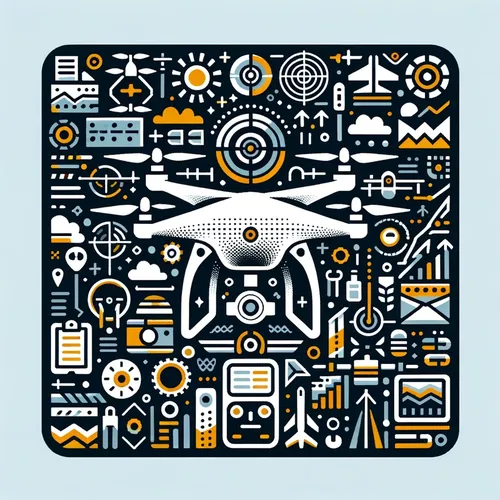Drone Pilots Soar: Inside the High-Flying World of Cutting-Edge Tech and Big Bucks
- Author
- Quiet. Please
- Published
- Fri 15 Aug 2025
- Episode Link
- https://www.spreaker.com/episode/drone-pilots-soar-inside-the-high-flying-world-of-cutting-edge-tech-and-big-bucks--67376235
This is you Professional Drone Pilot: Flight Tips & Industry Updates podcast.
Today, professional drone pilots are witnessing the dawn of a new era shaped by technology, evolving regulations, and rising client expectations. Those operating commercial drones in the United States must maintain a valid Part 107 Remote Pilot Certificate and complete recurrent training every twenty-four months, as detailed by the Federal Aviation Administration. As the industry matures, this certification remains fundamental for all aerial photographers, inspection specialists, and operators working for compensation. Meanwhile, registration fees are increasing, and advanced operation categories—such as flights in controlled airspace or over bystanders—demand in-person flight reviews and more challenging testing, making ongoing education crucial.
In the field, next-generation drones are providing significant operational advantages. According to drone industry analysts, current batteries deliver twenty to thirty percent longer flight times than previous models, supported by sophisticated cooling and power management systems. This means fewer interruptions for battery changes during critical missions, such as large-scale inspections or survey flights. Coupled with upgraded propulsion and aerodynamic propellers, today's drones maintain remarkable stability even in adverse weather, allowing professionals to expand their service offerings regardless of environmental challenges.
Predictive maintenance is another game changer. Companies are leveraging artificial intelligence and sensor data to enable predictive service, reducing unplanned downtime and extending drone lifespan. The drone maintenance service market is projected to grow at over five percent annually through 2033. This shift is especially impactful as businesses increasingly opt for drone-as-a-service models, blending streamlined operations with robust built-in maintenance. For solo pilots and fleet managers alike, adopting management platforms like Airdata UAV ensures compliance, optimizes performance, and minimizes liability exposure.
In terms of business opportunities, modular drone systems and multipurpose payloads let professionals adapt rapidly to client needs, covering ground from infrastructure inspections to precision agriculture without massive equipment investments. Industry news highlights a recent surge in demand for urban infrastructure monitoring, as well as a major partnership between a top inspection firm and a national utility, reflecting the expanding market for specialized aerial data collection.
Looking at pricing and client relations, professionals are advised to account for increased regulatory requirements, insurance premiums, and the value of specialized training in their service models. Building trust with clients now means providing detailed preflight risk assessments and transparent reporting—deliverables made easier by the latest management software.
As urban airspace becomes more regulated and automated AI-driven drones take on routine flights, staying ahead will require ongoing investment in both skills and technology. The future points toward increased airspace integration, real-time risk management, and even greater commercial applications.
Thank you for tuning in. Be sure to come back next week for more insights, and remember, this has been a Quiet Please production. For more, check out Quiet Please Dot A I.
For more http://www.quietplease.ai
Get the best deals https://amzn.to/3ODvOta
